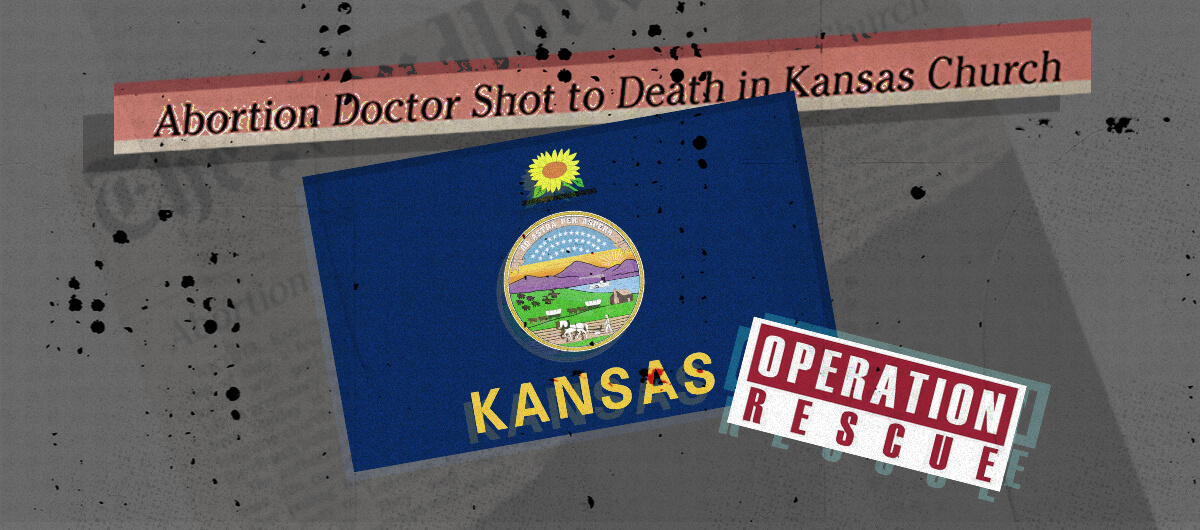

Access Denied
Kansas’s Pro-Abortion Vote Isn’t Such a Surprise
The state has a harrowing history of anti-abortion aggression and violence that citizens well remember—and, as Kansans decisive NO vote on Amendment 2 results indicated, never want to experience again.
This article was made possible because of the generous support of DAME members. We urgently need your help to keep publishing. Will you contribute just $5 a month to support our journalism?
The Amendment 2 results in Kansas prove abortion’s popularity, even in a deeply red state. The contest, which was expected to be close, was a rout, with “No” getting 58 percent of the vote and “Yes” a meager 41 percent. That is an overt mandate to keep abortion legal in a state where few thought that it could happen.
Kansas has been home to decades of anti-abortion harassment, aggression, and violence. On June 9, 1986, a pipe bomb exploded at Dr. George Tiller’s Wichita abortion clinic, causing $100,000 in damages. Three days later, in the kind of defiant display that he would become known for, Dr. Tiller hung a sign amid the rubble that read, “Hell no, we won’t go!” In 1993, he survived an assassination attempt by an anti-abortion terrorist, shot in both arms as he drove away from his clinic. On May 31, 2009, while serving as an usher in church, he was shot and killed by another anti-abortion terrorist.
Dr. Tiller also experienced perhaps the most horrific mass clinic blockade event in American history, what abortion opponents called the “Summer of Mercy.” In the summer of 1991, Operation Rescue, led by former used cars salesman-turned anti-abortion fanatic Randall Terry, decided to make Wichita, Kansas its latest target. Local law enforcement told Dr. Tiller that they couldn’t guarantee access for patients, so Dr. Tiller and the two other abortion providers in Wichita agreed to close their clinics for a week, a mistake that only emboldened Operation Rescue. Thousands of fanatics flocked to Wichita. On August 2, 1991 (31 years to the day before Kansans rejected Amendment 2), Dr. Tiller drove his pickup truck to the front of his clinic, only to find the front gate firmly closed, blocked by hundreds of screaming anti-abortion fanatics.
Dr. Tiller wasn’t the only one trapped in the chaos. A woman identified only as Sylvia Doe in her testimony to Congress, who had traveled to Wichita to terminate a nonviable fetus, was also trapped in her car. “We sat there for one whole day, in 109 degree heat, while about 1,600 people were swarming around our cars. They were screaming at us violently, spitting, pounding on the windows, holding huge, power-size pictures of bloody baby parts. It was a very volatile situation. I feared for my life.” Local law enforcement arrested the protesters one-by-one, carrying away limp bodies, only to have that person replaced by another protester. Dr. Tiller’s clinic was inoperable until a federal judge finally intervened and sent in the U.S. marshals.
The “Summer of Mercy” became a national news sensation, framed as the “abortion wars” fighting in real time, on-camera, in the heart of Kansas, for all to see. Never mind that most of the protesters weren’t even from Kansas, or the fact that 60 percent of Wichita residents opposed the blockades by Operation Rescue. Their aggressive, illegal, and traumatizing tactics were grossly unpopular in the very city they were attempting to make “abortion-free.”
The “abortion wars” narrative, cemented during those horrible few weeks in Wichita in 1991, still haunts us today, and it inhibits us from having honest conversation about what’s really happening outside of abortion clinics and in state legislatures. Americans clearly support legal abortion, and they have for half a century. If one side attacks, it’s not a war. It’s an invasion.
Abortion, like nearly every choice we make in our lives, isn’t black and white. There are untold shades of gray based on who we are, where we are, who we have to care for, and what we want our lives to be. Yes, support for legal abortion is a winning issue, one that Democrats should run on, not run from. But the results from Kansas also show that the narrative of the “abortion wars” is tired, reductive, and inaccurate.
In the month and a half since the Supreme Court overturned Roe v. Wade, Americans have seen firsthand the tragic and immoral reality that unfolds when abortion is banned. Cancer patients aren’t able to get their medication because it may cause an abortion. A 10-year-old rape victim was forced to travel across state lines to have an abortion. A Texas woman was forced to carry a dead fetus for two weeks after having a miscarriage.
Kansans saw the horror show that overturning Roe has unleashed and definitively said, “Absolutely not. Not here. Not today. No.”
It’s time we start believing them.
Before you go, we hope you’ll consider supporting DAME’s journalism.
Today, just tiny number of corporations and billionaire owners are in control the news we watch and read. That influence shapes our culture and our understanding of the world. But at DAME, we serve as a counterbalance by doing things differently. We’re reader funded, which means our only agenda is to serve our readers. No both sides, no false equivalencies, no billionaire interests. Just our mission to publish the information and reporting that help you navigate the most complex issues we face.
But to keep publishing, stay independent and paywall free for all, we urgently need more support. During our Spring Membership drive, we hope you’ll join the community helping to build a more equitable media landscape with a monthly membership of just $5.00 per month or one-time gift in any amount.




















































































